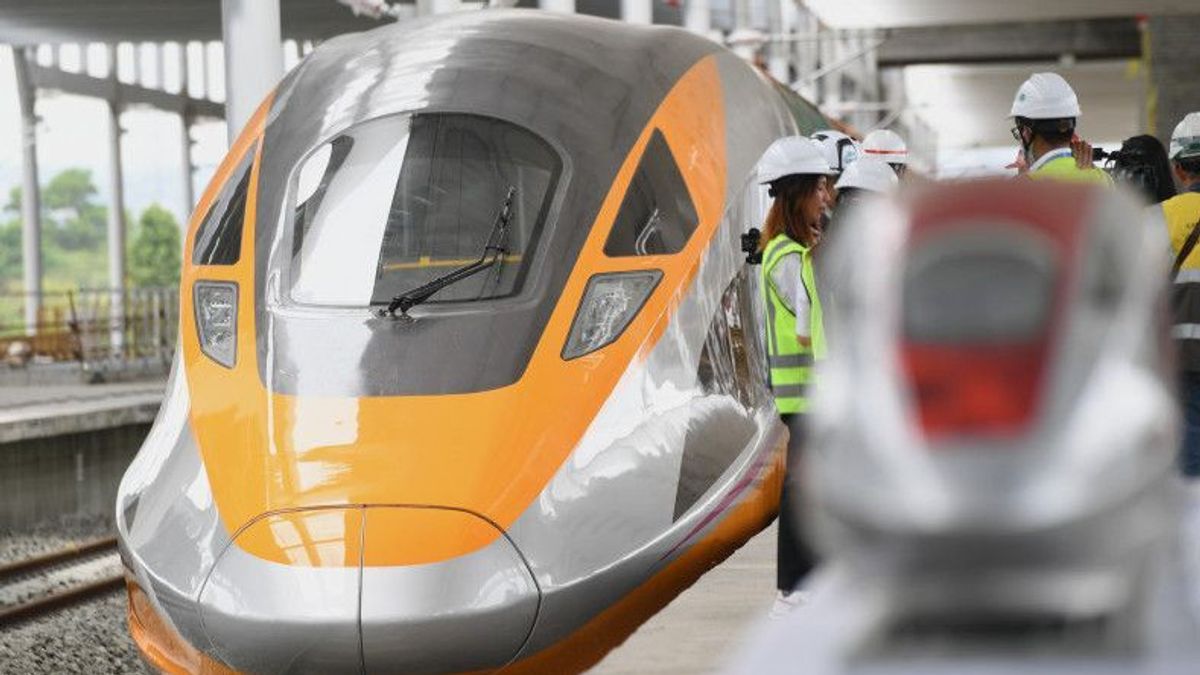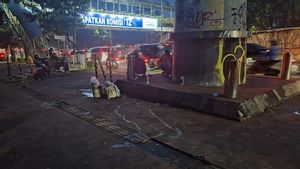JAKARTA - PT Kereta Cepat Indonesia China (KCIC) collaborates with various parties to increase accessibility, connectivity, and intermodal integration at Halim Station, East Jakarta.
The collaboration was carried out both with the DKI Jakarta Provincial Government, other government agencies, BUMN and private parties.
General Manager of Corporate Secretary KCIC Rahadian Ratries, through his statement, Saturday, March 25, said the accessibility to and from the Halim Station area is the basic aspect of the arrival of passengers and visitors.
"Halim Station area is a multi-use commercial area that not only supports the needs of KCJB (Jakarta-Bandung Fast Train) passengers but accommodates various urban life styles so that this area is also a filling pot for urban life," said Rahadian, as quoted by Antara.
He said another aspect that is also important in urban rapid transit culture is connectivity to various destination routes and integration to various advanced modes.
"Everything we do is done with careful consideration and excellent comfort. All the convenience and comfort of this modern transit area is a prime service for visitors to Halim Station and KCJB passengers," he said.
Halim KCJB Station, he said, will be directly connected to the Jabodebek LRT, BRT, non-BRT, and shuttle via highway to CBD DI Panjaitan and via Cikampek toll road.
"The presence of these alternative access will make it easier for people who want to travel using KCJB," said Rahadian.
He revealed that KCJB Station and LRT Station are connected via a comfortable skybridge with room conditioning and equipped with a row of retail outlets to complete passenger needs.
"Integration with the Jabodebek LRT makes it easier for KCJB passengers to continue their last mile journey to Bekasi or along the Kuningan Rasuna Said CBD to Dukuh Atas Sudirman," he said.
According to him, not only physical integration and comfort, but also the KCJB schedule which is up to 20 minutes will be combined with the Jabodebek LRT schedule which will be present every 6 minutes.
Good scheduling between the two modes promises time management that is reliable and predictable as a characteristic of the mobility of modern urban people.
In addition, he continued, Halim Station will also be connected to the TransJakarta BRT and regular shuttle buses to Halim Perdanakusuma Airport and Soekarno-Hatta Airport. The presence of BRT, non-BRT and shuttle at Halim Station adds alternative transit modes to various points that have not been served by the Jabodebek LRT.
Public and private vehicles will also enter Halim Station via an extension of the DI Panjaitan Road which was previously a dead end.
"KCIC thanks the DKI Provincial Government, Ministry of Defense, Perum PPD, and all other stakeholders for their support in presenting the road to stations that are easy for people to pass.
Other road access will also be available at the KM 1 + 850 toll exit of the Jakarta-Cikampek toll road. The construction of the toll exit is currently being carried out by the Ministry of PUPR, the Toll Road Regulatory Agency (BPJT), and Jasa Marga.
KCIC together with all stakeholders will continue to innovate in providing convenience and KCJB services both on trains and in station areas.
"We are sure that the presence of various integrated modes of transportation will make KCJB more attractive to the community," said Rahadian.
Previously, the Minister of Transportation (Menhub) Budi Karya Sumadi together with the Acting Governor of DKI Jakarta Heru Budi Hartono, Thursday, March 23, reviewed the Halim Station construction project.
The Minister of Transportation said the progress of the construction of Halim Station was approaching 90 percent.
He also appreciated the role of the DKI Jakarta Provincial Government which intensively supported the realization of the integration of mass transportation at Halim Station.
Coordination between PT KCIC, Jabodetabek LRT, DKI Jakarta Provincial Government, and other related parties is very important to continue.
"It is impossible for mass transportation to run well without the support of local governments and intensive coordination between stakeholders," said the Minister of Transportation.
The English, Chinese, Japanese, Arabic, and French versions are automatically generated by the AI. So there may still be inaccuracies in translating, please always see Indonesian as our main language. (system supported by DigitalSiber.id)









